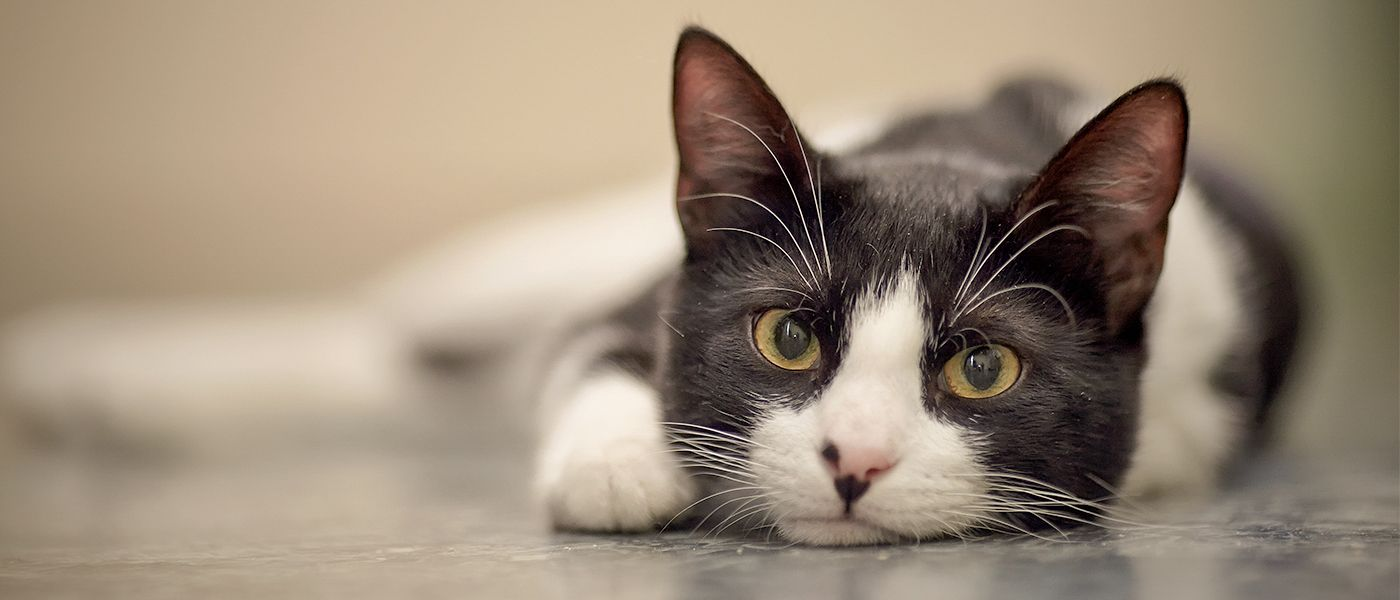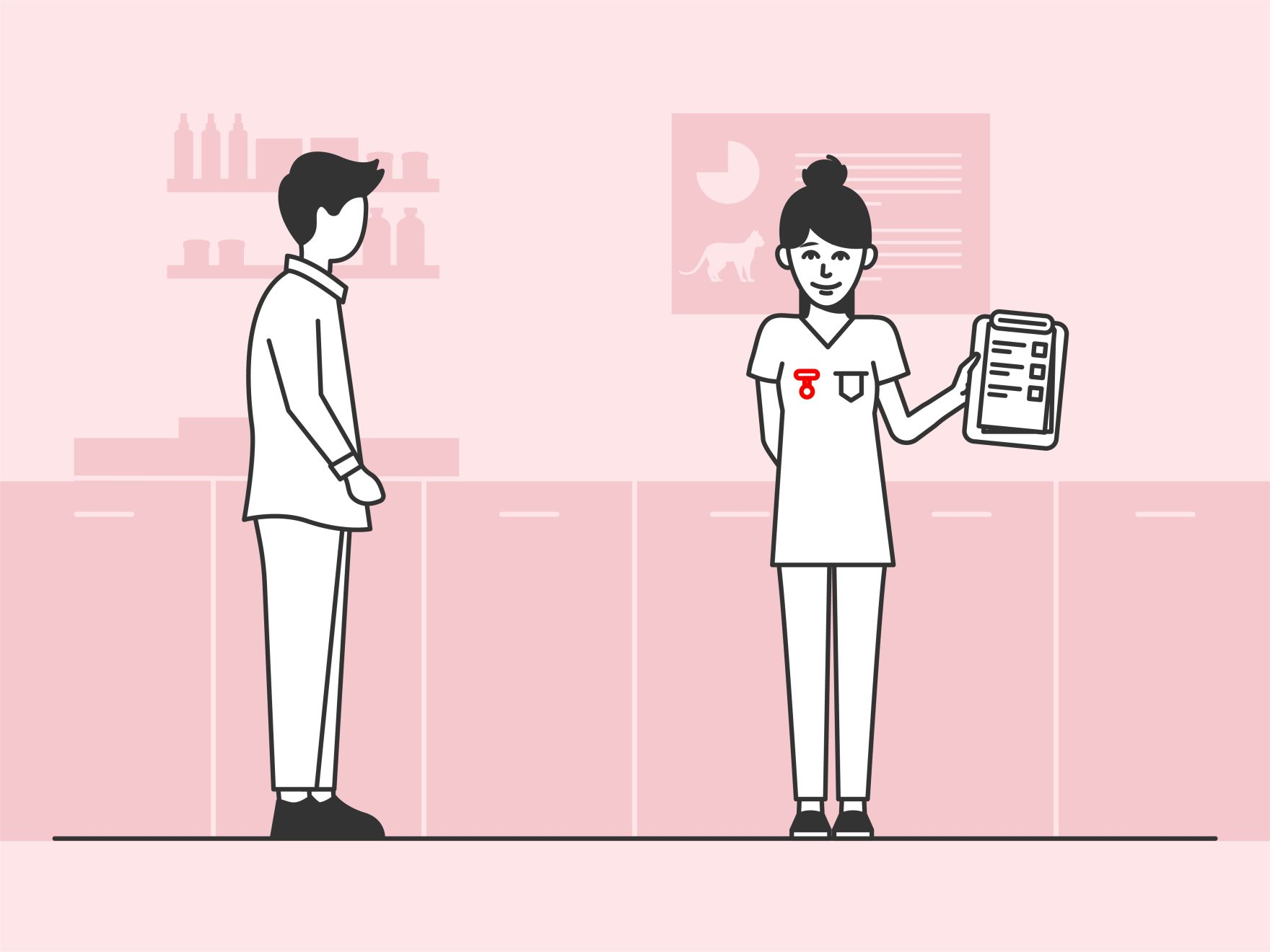What is the Best Cat Food for Urinary Health?
Article

As a species, cats are predisposed to developing urinary and bladder issues. The modern cat descends from desert-dwelling ancestors, and this heritage may be a contributing factor due to its influence on the cat's water consumption preferences. They inherently conserve water by concentrating their urine and have a very low thirst drive – which means they don’t always seek water when their body needs hydration.
Unfortunately, urinary crystals and bladder stones are more likely to form in urine that’s highly concentrated, and these can trigger inflammation in a cat’s urinary system. Additionally, stones can cause obstructions that prevent a cat from urinating.
Cats can also develop sterile inflammation in their urinary system, a condition known as Feline Idiopathic Cystitis (FIC). FIC is more common than bacterial urinary tract infections in cats. While the cause of FIC is not clearly understood, certain factors are known to encourage the illness, such as stress. FIC can affect both male and female cats.
Collectively, the various causes of cat urinary problems are referred to as Feline Lower Urinary Tract Disease or FLUTD. If your cat has FLUTD or is thought to be susceptible to developing a urinary condition, a change in diet is one of the treatments your vet may recommend.
Why Tailored Foods are Important for a Cat’s Healthy Bladder
Tailored diets are designed to support a cat's urinary and bladder health. Using carefully balanced nutrients, they aim to:
• Improve hydration
• Encourage urination
• Help reduce the chances of stones and crystals forming
• Dissolve certain stones (only some diets can support this)
Numerous diets for your cat's urinary and bladder health are available, and they’re often sold in both wet and dry options. Your vet can recommend the most appropriate tailored nutrition plan for your cat.

The Difference Between Proactive and Recommended Nutrition
Typically, urinary diets are classed as either proactive or recommended by a veterinarian.
A vet may recommend a diet as part of a cat’s treatment plan. If a cat has been diagnosed with a urinary issue like bladder stones, a urinary diet may be recommended to try dissolving stones and help reduce the possibility of future flare-ups.
Proactive diets contain nutrients that generally support a cat’s bladder and urinary health, often by controlling mineral levels and increasing water intake. These diets are intended for healthy cats, to support their ongoing urinary health.
Your veterinarian may suggest switching to wet food, as it often contains a high percentage of water. This means it’s a simple way to help keep a cat hydrated and reduce the concentration of their urine.
You can learn more about the importance of water to a cat’s urinary health here.
How Does Cat Food for Urinary Crystals and Stones Work?
Urinary diets aim to promote good bladder and urinary health by:
- Regulating minerals. Minerals like magnesium, phosphorous, and calcium are known to influence the formation of stones and crystals in the urinary system, and so urinary diets usually try to restrict these minerals.
- Adjusting urine pH. The acidity of a cat’s urine also affects the development of certain crystals. As a result, urinary diets will often alter a cat’s urine pH to make it less favorable to crystal formation.
- Diluting urine. Diluting a cat’s urine is important for protecting against and dissolving urinary crystals. Some diets contain high levels of moisture to increase a cat’s water intake and reduce the concentration of minerals in the urine. Other diets may contain nutrients that encourage water consumption. The net result of increased water intake is increased urine volume, which causes the cat to urinate more frequently. This gives the crystals less time to accumulate.
However, there isn’t a one-size-fits-all dietary solution for managing urinary health in cats.
Urinary stones, for example, can form in different parts of the urinary tract. They can vary in size and shape and have different compositions depending on which minerals formed them.
Two types of stones that can form in a cat's urinary tract are struvite and calcium oxalate stones. Tailored nutrition can help reduce the likelihood of these stones occurring. While struvite stones can be dissolved with a special diet, calcium oxalate stones must be removed, usually by surgery.
In certain cases, a cat won’t have stones but may suffer from stress, which is known to be a contributing factor to urinary illnesses like FIC. Certain urinary diets include nutrients that are thought to be calming for cats, and so these may be an appropriate choice in some instances. Because of these differences, your vet will need to diagnose the cause of your cat’s condition before they can recommend a urinary diet. That may involve reviewing the cat’s clinical history, conducting an examination, and performing blood and urine tests. X-rays may also be recommended to look for bladder stones.

My Cat has a Bladder Problem, What Do I Do?
There are several signs that a cat may have a bladder or urinary problem.
They may be peeing outside the litter box, peeing more frequently, straining, or vocalizing in the litter box. Another sign of a urinary or bladder problem is blood in their urine. You may also notice behavioral changes like increased vocalization, hiding, avoidance, or aggression, which may be a sign that they’re in pain or feeling anxious.
If you recognize any of these signs, contact your vet immediately. Cat urinary problems can be serious, and if a cat has a blockage that’s preventing it from urinating, it could be a medical emergency.
For more detailed information, visit our urinary signs and symptoms page.
Treating Cat Bladder Problems
The management your vet recommends will depend upon the cause of your cat’s urinary condition and how serious it is. In addition to a change in diet, they may suggest:
- Medication such as antibiotics or anti-inflammatories
- Surgery to remove stones
- Catheterization to relieve urethral obstruction that can be caused by stones or plugs.
- Fluid therapy for dehydrated cats. Dehydration can lead to urinary problems in cats, so additional fluids are sometimes needed. These are usually delivered under the skin or through an IV.
You can also make changes around your home to support your cat’s urinary health too, and these can help reduce the chances of future problems.
Increase Your Cat’s Water Intake
Keeping a cat hydrated is important to its urinary health. As we’ve discussed, a wet cat food diet may improve their water intake, but there are things you can do to encourage your cat to drink more as well – like making sure they have multiple water bowls throughout the home.
Reduce Stress Factors
Loud noises, guests, moving to a new home, or a new cat arriving – many things can make a cat feel stressed. Try playing soothing music to help calm your cat and learn what they prefer.
Enhance their Environment
If a cat isn’t comfortable, it can become bored, frustrated, and stressed. Introducing environmental enrichment activities into your household can not only improve the physical and mental wellbeing of a cat, but can also support their urinary health.
Download the guide to learn more about improving your cat's environment here.
Your vet can help you choose the best food for your cat’s urinary health based on your cat’s needs and health condition. Tailored nutrition is just one part of supporting your cat’s urinary health. Increasing hydration, managing stress, and optimizing a cat’s litter box habits all play a part. Speak to your vet if you have questions about this article or suspect your cat has a urinary condition.
Related Articles
Like & share this page